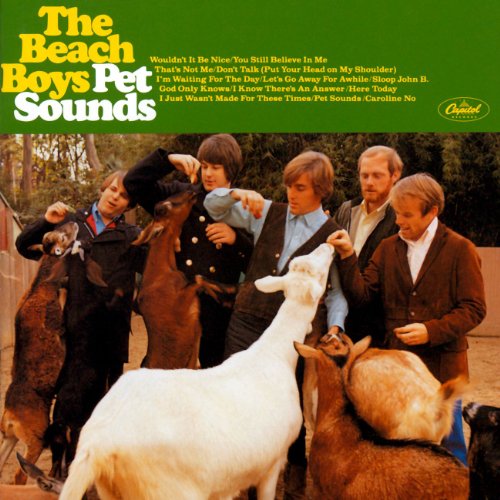(I originally wrote this post for my friend Mike McHargue's blog)
I used to hate the Beach Boys.
“Hate” may be too strong a word, but it’s pretty close. I thought their music was cheesy and simplistic. Perhaps it’s because I thought all of the songs sounded the same, or perhaps it was because of their association with the sitcom Full House.
Regardless of how my dislike began, I held onto it for most of my life. I was a person who did not like the Beach Boys. This was my reality.
But then about six months ago, I read in Rolling Stone Magazine that lots of music critics think the Beach Boys’ album Pet Sounds is one of the greatest records of all time. I thought that was bonkers. How could the Beach Boys have possibly produced one of the all-time greatest rock albums?
Regardless of my prejudice, I went to Spotify and listened to Pet Sounds. The next day, I went back and listened again. Then I started listening to other Beach Boys albums. It took less than a week for me to change my perspective completely: all of a sudden, I liked the Beach Boys (I do like them, Sam-I-Am!).
I’m not saying that I had been completely wrong. There are still some Beach Boys songs that I hate (I’m looking at you, “Surfin’ U.S.A.”), but there are also some songs that I really love (my personal favorite is “Sail On, Sailor”).
What happened with me and the Beach Boys is a phenomenon most human beings experience at various points in their lives: I changed my mind.
Changing your mind can be a scary thing. It’s one thing to appreciate a new kind of music or discover that you like seafood, but it’s a whole other thing to change your mind about how God and life and reality actually seem to work.
Throughout my life, there have been moments when I changed my mind, and each time it significantly altered the way I viewed the world.
I grew up in a world where changing your mind was seen as a sign of weakness or a lack of conviction. People were admired for digging in their heels and gripping onto their opinions with white-knuckle determination.
However, I have learned that when a person changes his or her mind, that is not an act of weakness. In fact, it takes an enormous amount of strength and courage to say to yourself and to other people, “I know I’ve always thought this way, but I think I may have been wrong.”
Over the past ten years or so, I have changed my mind about issues within theology, politics, and relationships. Almost every shift in thinking involved some level of pain or fear. To change your mind is to die a little—to become a different kind of person, even in small increments. However, it is also an opportunity for resurrection—to become a better, healthier, open-minded person.
This is what growth really is.
Lots of people have the idea that growth is the act of learning more about what you already think and believe. But I don’t think that’s true.
Real growth happens when we learn that we don’t know everything, and some of the things that we think and believe are simply incorrect or misguided.
Growth happens when we learn to look at the world in new and different ways—when we learn to see through the eyes of people who are unlike us and think in ways we have never thought before. This means that we must embrace opportunities to change our minds.
If you have been asking new questions or wondering if the way you have always thought about the world might contain a flaw or two, I hope you will set yourself free and invite those new questions. Perhaps you are on the brink of a major moment of growth.
Perhaps you are becoming who you were always meant to be.
(*Footnote: This entire post was written while I listened to the Beach Boys)
What do you think? When was the last time you changed your mind about something important? How did it feel?
